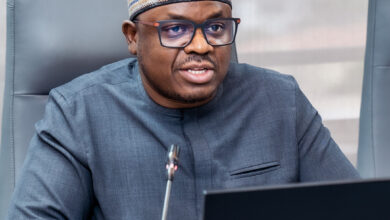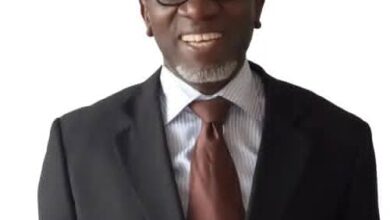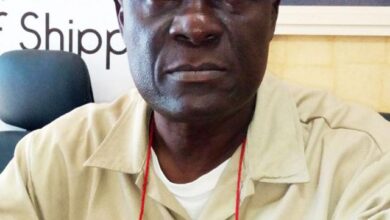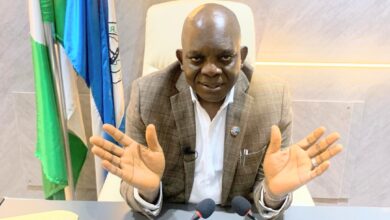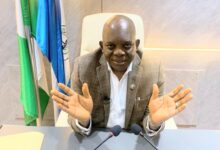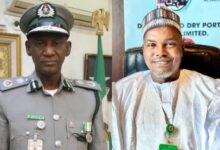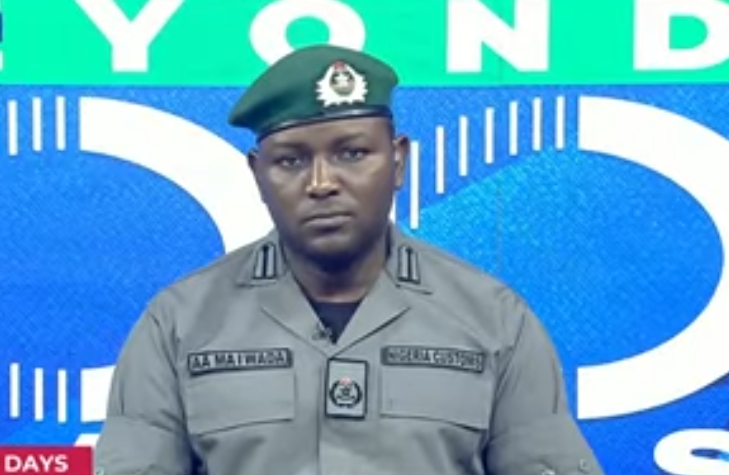
Assistant Comptroller of Customs Abdullahi Aliyu Maiwada in this interview monitored by our reporter on TVC talks about the efforts made to collects ₦6.1tr in 2024, AEO and why Customs are on top of their game in combating smuggling
Excerpt
N6.1trn revenue generated in 2024 is not a child’s play, tell us what you have done differently.
Thank you very much for this opportunity. Well Nigeria Customs Service has recorded a history in terms of revenue collection and we have collected a sum of over N6.1 trillion, an amount that is historic in the last 100 years of existence of the Nigeria Customs Service.We have never collected such amount.
Now, the reasons behind the success story we are dishing out today, is we need to have a motivated workforce. Human resources are important and very critical to the success of every organization and if that human resources are well motivated and they have the right training the right skills to collect the revenue, definitely, there will be minimal linkages in terms of revenue collection. I think one of the reasons why we recorded this success story is the workforce that are motivated to collect maximally on behalf of the federal government of Nigeria.
Secondly, in terms of the issues of human resource, we will also dwell at the capacity building of officers.We are very intentional about training of officers to meet with the best practices in the area of Customs operations both in revenue collection, in trade facilitation as well as suppression of smuggling that is also another very critical area.
Another area we have differently is in terms of its stakeholders engagement and the effort of collaboration. The coming of the Comptroller General of Customs as the CGC of Customs shows three broad areas collaborating with stakeholders, issue of innovation, and issue of consolidation.
Somebody somewhere has done something very significant and we need to consolidate on that , improve on that and that improvement translated into the has success story we are recording. In the area of stakeholders engagement, if you realise the last year World Customs Organisation, it celebrated Customs and had a theme for 2024 which talked about Customs engaging with traditional and new partners for a purpose.
This means our engagement with traditional stakeholders and new partners have really revamped our revenue collection.In the area of collaboration, collaboration with government agencies, collaboration with private sector as well as international collaborations has yielded more revenue collection for the Nigeria Customs Service.
It is a new year, what is the Nigeria Customs Service doing for importers and exporters as the federal government targets increased revenue generation?
Well I have said this in different arenas where I found myself that Customs always sits on three tripods and we must be effective in those three responsibilities.We cannot effectively collect revenue if there is no effective trade facilitation and we cannot collect revenue if our borders at sea, land and air are porous and our are not effective in terms of mining these borders for movement of consignment and so on without proper control, I mean border control. Nigeria Customs Service will succeed because if we look at those three broad areas. In 2025 we are looking forward to a year of consolidation on our previous gains, it’s not an avenue for us to rest on our oars .We are going to be very intentional.
I hear you Mr Maiwada, talking about intentionality, you know the Nigeria Customs performs several roles including trade facilitation and revenue generation just like you have mentioned, but what we hear mostly is revenue generation. At whose expense is this because Nigerians are complaining that they can no longer buy tokunbo automobiles for instance , meanwhile new cars are very expensive?
I want to talk broadly then I will be specific to the issue of tokunbo vehicles. I think the revenue collection on RoRo vehicles, there’s what we call RoRo vehicles, vehicles that are not containerized its very ….. compared to the revenue we collect from bulk cargoes so that the trillions we are dishing out are not really basically from importation of used vehicles.Used vehicles contribute to our revenue collection but it is really significant compared to bulk importation. People that import items that usually add value to those items in terms of manufacturing , packaging and so many value addition.
Our bulk of revenue is coming from bulk importation not from RoRo vehicles, tokunbo vehicles. Basically, we believe trade facilitation is very important and that is why we have rolled out scheme such as Authorized Economic Operator program.
We feel if you are a compliant trader, we are going to give you a V.I.P treatment .We will give you a preferential treatment so that you can move your cargo faster than non-compliant traders.
We have to give you dividends for compliance. Those are what we are doing to make sure that those who are out to do legitimate trade get value for being legitimate for doing the right thing. Concerning the issue of tokunbo vehicle, the system the government adopted is called fiscal policies measures and those fiscal policies measures determine the rate of duty collection on different categories of items and that’s why we have different band in our tariff book.
We have items that come in 0% duty, 10% duty , 35% duty with levy. If you see an item having 35% duty with levy and so on, it means the government is intentional about it’s fiscal policy. We have a national automotive policy. We also want to assembly vehicles in Nigeria, we want to use brand new vehicles in Nigeria.
The essence of imposing tax on some of these items is to make the economy better, more sustainable and more viable for all Nigerians.We are not imposing tax or we are not collecting tax on vehicles because we want Nigerians to suffer or vehicles not to be affordable to them rather we want it to be self-sufficient to them.
I hear you loud and clear, but you know we have to talk about the cost of clearance, it is pegged at about 70%. why is the figure that high?
Well as I explained earlier if you look at different bands in our tariff we have what is called common external tariff .
We have different bands with different rates of duty and for each category of items, there’s an imposition of a particular volume that is the percentage rate of duty that is imposed on that particular commodity.If you are importing some categories of items that request manufacturing, maybe medical equipment, agricultural inputs , those categories of items come in under 0% levy. We have items that are imported as CKDs, SKDs semi knock down or what you called completely knock down. Those items , when you bring them into Nigeria, are going to add value or assemble.
There will be some element of manufacturing or assembling on those items .It could be vehicles and it could be other items. The imposition of duties on those items is barely 10% duty.When you are importing tokunbo vehicles or brand new vehicle, the government in its wisdom may decide to say you are imposing duty and levy on those vehicles so that those who are importing CKDs SKDs in either to assemble or to manufacture in Nigeria.We will be able to compete with those who are bringing in fully built vehicles and that is the essence of fiscal policy. But our role as agencies of government, is that we are responsible for the implementation of these policies.
We don’t design rate of duties, we don’t determine what will be the rate of duty in each items. It is a product of fiscal policy by the government and it is also our responsibility to explain to members of the public why we have to implement this policy.
You’ve spoken about these rates, but how many manufacturing plants do we really have in Nigeria that can serve the entire citizenry and if you look at it, the difference is actually very homongenous and this would have just been a respite for these people who need to be mobile?
Well, our responsibility is to implement and we are implementing . I can remember vividly during the last 2024 CGC’s conference , one of those we invited to be part of the panelist .The high level panelist is a very good manufacturer of vehicles, somebody who assemble vehicles here in Nigeria.
We have so many of them coming in, they are doing that and the government needs to support them to grow. We cannot continue to use tokunbo vehicles.
What is the volume of vehicles they release to the market and how affordable are these items because I want to believe Nigerians are not exactly against buying new cars but how affordable are these vehicles?
It’s a gradual process, we are surely going to reach the promise land. We have to start somewhere.
Alright then, because of affordability and the ability to actually get spare parts when something is wrong is another issue and you know Mr. Maiwada on the Lagos, Benin, Onitsha highway also for instance, you will see at least 5 Customs checkpoints, is this not duplicity of duties for these personnel?
Let me start by saying last year towards the end of December 2024 we issued a statement reinforcing our new anti-smuggling strategy which has been approved by the management of the Nigeria Customs Service under CGC Bashir Adewale Adeniyi .One thing the Customs need to be more effective is deploying intelligence driven operations and we have tried with one of our best operations and we are succeeding in that operation.
The coming of the CGC first sees the end of the traditional CGC’s taskforce and all the powers of those taskforce was moved to Federal Operations Units Zone A,B,C, and D to perform that second layer of checks. Now,we have different layer of checks. The second layer we have is the joint border patrol operation which is under the office of the National Security Adviser.
That program was also called to an end because we want to give those enforcement units the powers to perform their functions without creating encumbrances to trade facilitation .
We have started that and we have related our enforcement strategies that will be intelligence driven. We are working on how we can effectively integrate technology into our operations .
We started with the operation called operation whirlwind. Operation whirlwind is an operation that has to do with curtailing the smuggling of petroleum products outside Nigeria and that operation you can never see a vehicle on the road stopping you with the name of operation whirlwind.
The operation is purely intelligence driven. We use sophisticated software. We monitor the movement of cargoes ,we also use collaboration with NMDPRA and so on to provide the stocking of all petroleum products across the country and with that we have succeeded in intercepting thousands of petroleum products intended to be smuggled outside the country at various region within the country .It could be in the North-East, North-West, South-West, and it could be anywhere. In so many places, we have done interception so that our operation will be intelligence driven.
Intelligence driven, that is critical, because as it is also you know we hear reports of Customs personnel doing their job which is something you’ve also spoken about, but we still find containers on our roads containing these items that should not have left the ports .If the officers are really doing their jobs , are we supposed to still find these items on the highways which will now lead to having more personnel on the road trying to hold them?
That is why I said we have layers of defense. If you are a smuggler or you have a very bad intention to smuggle something very dangerous into the country and you succeeded in passing through the first layer of defense, we have another layer that we can also use to get across to you. If you recalled in 2017 we had seizures of arms and ammunition .Those arms and ammunition were seized outside the ports .
That is the essence of having second layer of defense. After the first layer have done their own nitty-gritty , we also have reasons to recheck if there are other infractions or there are items that can be inimical to my own safety, to your own safety and to all Nigerians so we have that prerogative to do that.
We also have the power to do what we call Post Clearance Audit (PCA). We can allow your vehicle or your items to go in later, we can audit and look if there are infractions or if there are any discrepancies.






